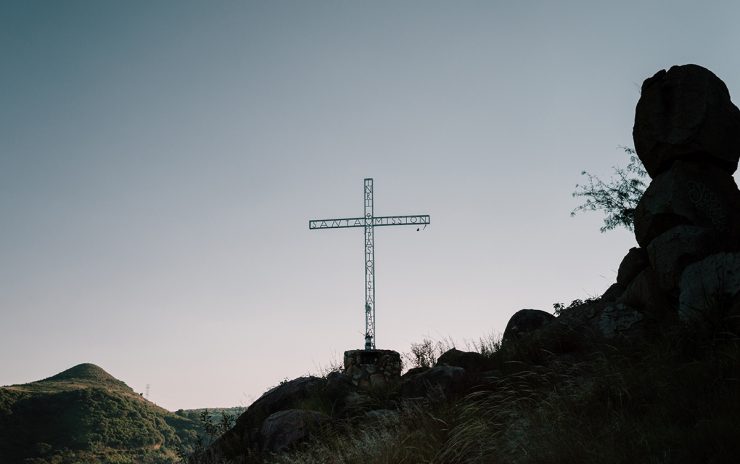Planting “Pocket Churches”
Peter Drucker wrote that we must measure, or judge every effort. He added, “…the single most important thing to remember about any enterprise is that results exist only on the outside.”
If results exist only on the outside, the size of your church is not an effective measuring device. God measures your results from the outside, “How did you do in light of the Great Commission?” The question is not, “How many people attend my church?” Rather, we should ask, “are we discipling nations (ethne, overseas and at home)?”
Pastors need to ask, “How did my efforts stack up against my measured accomplishments?” We may not be happy with the answer to that question.
The Great Commission is the measuring stick for every church and its leaders
Jesus commanded that we make disciples of every nation. The Greek word for nation is “ethne.” The Strong’s Bible Dictionary translates ethne as “a race (as of the same habit), i.e. a tribe, especially, a foreign (non-Jewish) one (usually by implication, pagan)”
I’m intrigued by the thought of an ethne as people of “the same habit.” By this definition, unique and individual ethne surround every church in America. I like to call these groups “pockets of people.” So, let’s talk about planting pocket churches.
Denominations in North America are losing ground. Our churches are expensive to operate. Real estate, employee costs and program expenses keep money tight. Finding money to plant churches gets difficult. And, the future promises more of the same. One way to solve this problem is to add another approach to church planting. We could turn individual congregations into centers for “lay-led” missionary efforts.
We already do this when we send teams on short-term missions to other countries. Why not send teams a long-term mission to the ethne in our communities?
Assuming “APEST”
This idea rests on an assumption. “Every congregation includes apostles, prophets, evangelists, pastors (shepherds) and teachers.” The current trend is to summarize this list with the acronym, “APEST.” The word “shepherd” stands in for pastor to make it work. It is a useful tool to balance our ecclesiology.
Our current model centers on pastors and teachers. We have little use for the prophets among us (who might range from Bob Dylan to Alan Hirsch). Until recently, the American church distorted the concept of an evangelist. Billy Graham qualified, as did itinerant preachers. Now we recognize individuals, in our congregations, as “gifted” at bringing people to Christ. You still dare not utter the word apostle in some groups. This stem from an erroneous belief that the only real apostles had been with Jesus. This cessationist idea has cost us a lot of ground.
Suppose the average congregation includes a small percentage of apostolically gifted people? What if we commission these people to plant house churches?
The idea would be for them to meet in a house, or outgrow it as the situation developed. Meeting in homes is not sacred. But homes are an inexpensive place to plant churches and they are always available. I know churches started in everything from auto-body shops to rave clubs. The place doesn’t matter. The approach does.
We could send apostolic church members into the surrounding ethne. They would keep their jobs so salary would never be an issue. This eliminates money as a primary driver of church growth. These churches could build on evangelism rather than transfer growth. They wouldn’t need to generate growth to sustain a budget.
The few pocket church pastors I know continue attending the mother church. This isn’t much different from running a home group. The major differentiating factor is that the meeting remains in the pocket population rather than integrating with a middle-class congregation.
Innovative Church Planters
I have a friend who pastors three churches in downtown Honolulu—on weekdays. They meet early in the mornings. Two of them meet in restaurants, A friendly bar owner hosts the third. Most congregants are unable to attend church on the weekend. The reason? They are single parents, too tied down with children’s activities to attend a conventional church. A couple of them are women whose husbands prevent them from attending church on Sundays.
Another friend planted a church in a teenage gang. They came under physical attack three times. People went to the hospital, but the church prevailed. This 52-year-old found himself surfing and playing basketball with 17-year-olds. He recently returned from Kenya where he trains pastors for similar outreaches.
A group of people in Los Angeles led a church on a parking lot in skid-row. It lasted many years. They taught the “church members” to do much of the ministry.
I know two people who are planting a church that moves from neighborhood to neighborhood. Whenever the police sweep homeless people off the street, these guys move with them. They pastor a church among the ethne that we call homeless.
Our congregation once loaned a conference room to some legal Salvadoran immigrants. They use it on Sunday mornings. We restricted our church, including our staff, from visiting the premises. It was off-limits until after 1 PM on Sundays. We didn’t want to “know” what those young Christians did in our space. But we did know that their father was an illegal immigrant. He had pastored three “sidewalk churches” while living in El Salvador. He was not a street evangelist. These were churches with regular attenders.
Opportunity and Innovation
Opportunities abound if we’re willing to innovate. Given a new approach you could plant churches among people you may not have considered “reachable.”
We could plant pocket churches among the homeless. People with the right connections could reach recent immigrants. Youth-gangs are a tough call but every gang member knows at least one Christian. I know a former bank president who could reach ultra-wealthy people who share little in common with our middle-class congregation. One man I know wants to plant a church in the home of a gay friend–He believes the LBGTQ community needs Jesus.
If you studied the life of Dawson Trotman, you learned a lot about making disciples. Did you ever consider that those Navigator groups were actually small churches? They had a leader. They assembled for fellowship and teaching around the Scripture. Living on ships isolated them from any other church. These were pocket churches.
Members of my congregation once planted a church in Antarctica. They lived in a scientific research facility. I guess you could call this an extension campus since I was the Bible teacher via audio recordings. This was a pocket church. It was self-sustaining, other than the outside influence of the recordings.
That Money Monster
One thing to notice in this discussion is that money drives none of it. Such an approach could free funds in an unusual way. What if people held their tithe and reserve for “love and good deeds,” wherever they found opportunity? This would make every member a well-funded minister. But that’s a topic for another conversation…
This blog was written by Ralph Moore and published here with permission. To view the original post, click here.
Ralph Moore is a church planter and disciple maker. He planted Hope Chapel Hermosa Beach in California, Anchor Church in Hawaii, and Hope Chapel in Honolulu. He help start the Hope Chapel movement, which began with just 12 people, the ‘movement’ mushroomed to more than 2,200 churches worldwide. See his books here, download his sermons here, and visit his website here.







